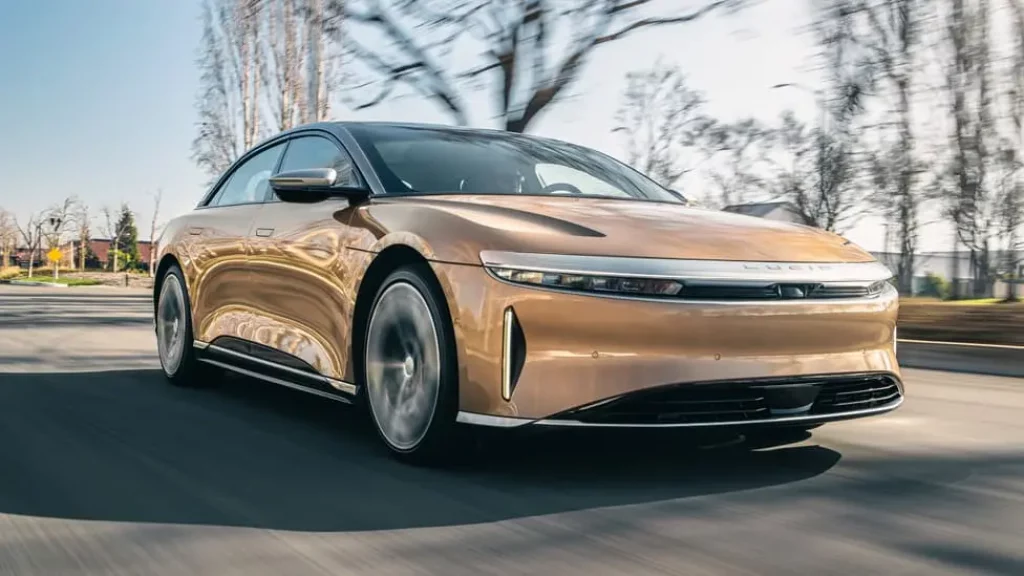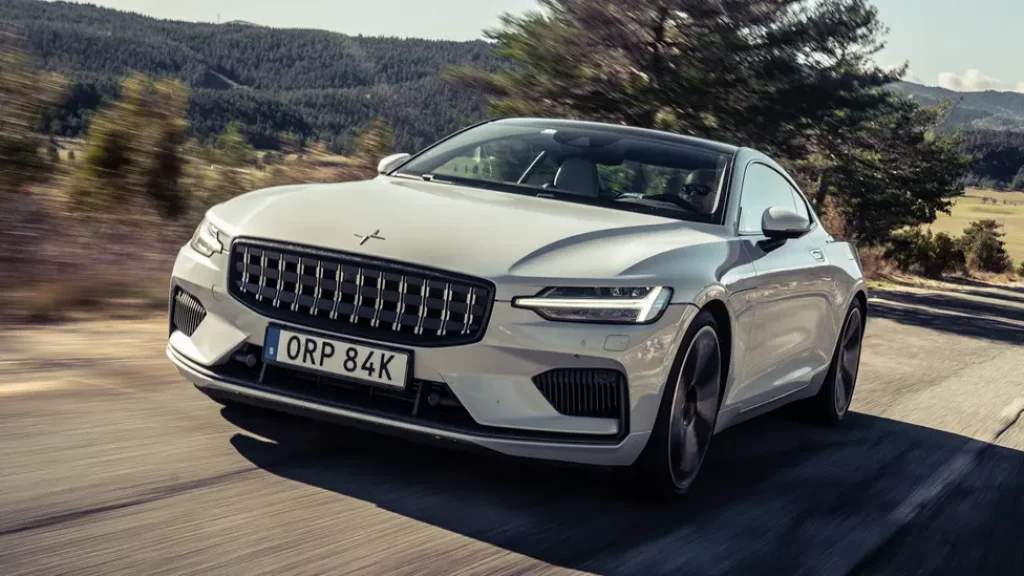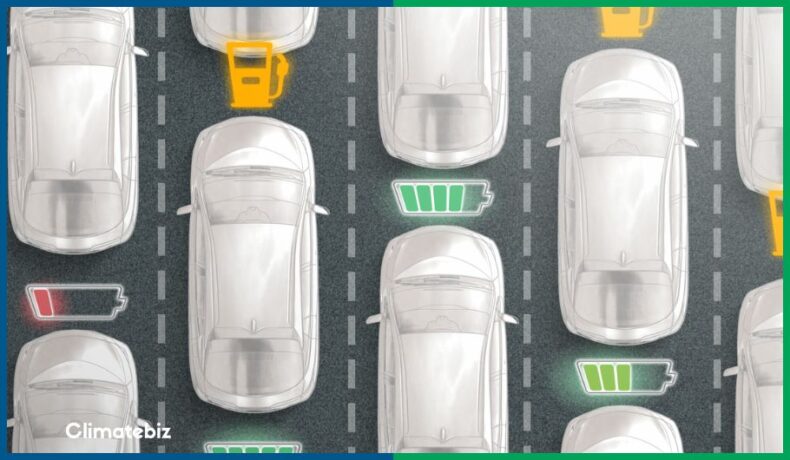Researching and buying a new car can be incredibly stress-inducing. Hundreds of different models exist, and the electric vs. hybrid vs. gas car debate doesn’t really make the decision-making process any easier.
Now, while we can’t push you toward choosing a particular brand or model, we can narrow things down considerably by helping you choose between one of the above car categories.
In this post, we compare electric vs. hybrid vs. gas cars by looking at factors such as range, savings, maintenance, C02 footprint, and more!
Table of Contents
Electric Vs. Hybrid Vs. Gas: Which Has The Best Range?
The following figures represent average travel ranges for electric, hybrid, and gas cars:
- Electric: 100 – 520 miles
- Hybrid: 330 – 470 miles
- Gasoline: 284 – 702 miles
Electric Cars
Electric vehicles have come a long way in recent years, and today’s models can travel surprisingly far on a single charge. However, there are still some limitations to how far these vehicles can go.
Factors Affecting Range
- Battery size: A larger battery can store more energy, allowing the vehicle to travel further before recharging.
- Electric motor efficiency: More efficient engines require less power, translating into a longer range.
- Driving habits: For example, accelerating quickly or driving at high speeds will use more energy and result in a shorter distance traveled before needing to recharge.
Standout EV Vehicle
The Lucid Air Dream Edition is currently the king if you’re looking for an electric vehicle with the longest range. It boasts up to 520 miles on a single charge.

Source: TopGear.com
Hybrid Cars
Hybrid vehicles use two or more distinct power sources to move. The most common type of hybrid vehicle uses an internal combustion engine (ICE) paired with an electric motor.
The ICE powers the vehicle while traveling at high speeds, while the electric motor provides power at lower speeds and during start-up. This arrangement helps improve fuel efficiency and reduce emissions.
Limited Range
Hybrid vehicles are hampered by limited range because the battery packs required to power their electric motors are relatively small.
Another reason is that the ICE cannot run indefinitely without stopping to refuel. As a result, hybrid vehicles are typically designed for use in urban areas, where there are frequent stops and starts and relatively short distances to be traveled.
However, advances in battery technology are slowly starting to increase the range of hybrid vehicles, making them more viable for longer journeys.
Standout Hybrid Vehicle
The Polestar 1 is rated by the U.S. Environmental Protection Agency as the hybrid with the longest range of 52 miles on electric power alone.

Source: TopGear.com
Gasoline Cars
Gasoline or diesel-powered vehicles have internal combustion engines that use gasoline or diesel fuel. Gasoline-powered vehicles have the longest range of all three car variants but produce the most emissions.
The average gasoline vehicle can travel between 300 and 600 miles on a single tank of gas. This range is dictated by the following:
- Gas tank size
- Engine efficiency
- Driving habits
For example, driving at high speeds or in stop-and-go traffic will use more gas than driving on the highway at a steady speed.
Most gasoline cars are small to medium-sized sedans, although there are numerous SUVs, minivans, and trucks that run on gasoline. So, if you’re looking for a vehicle with a long travel range, a gasoline vehicle is probably your best bet.
However, an electric or hybrid vehicle will be a better choice if you’re interested in saving money on fuel costs or reducing your environmental impact.
Related Reading: 10 Electric Cars Under $60,000 With The Longest Range
Which Is The Most Expensive Electric Vs. Hybrid Vs. Gas?
Multiple variables affect a car’s price — purchase price, fuel costs, and resale value all play a part in calculating the total cost of ownership (TCO).
That said it is possible to get an idea of how expensive each vehicle type is by comparing their average purchase and fuel price.
Let’s have a look:
| Electric | Hybrid | Gasoline | |
|---|---|---|---|
| Purchase Price | $35,948 – $76,418 | $22,736 – $42,923 | $19,095 – $37,513 |
| Fuel Price | |||
| Gas (Premium) | N/A | $2.99/gal | $2.99/gal |
| Gas (Regular) | N/A | $2.63/gal | $2.63/gal |
| Electricity | $0.126/kWh | $0.126/kWh | N/A |
Electric Cars
Electric cars are often considered the most expensive type of car to buy. The initial purchase price can be higher than a petrol or diesel car, but running costs are lower.
That said, EVs are capable of retaining their value better than traditional petrol or diesel cars, so the total cost of ownership can be cheaper in the long run.
Cost Variables
An EVs cost can vary depending on several factors, including brand and model, battery size, and local electricity rates.
The purchase price can be a barrier for some consumers, but some factors offset the initial investment. For starters, EVs are cheaper to operate than gasoline cars since they only require a small amount of electricity to charge the battery.
In addition, they don’t require frequent maintenance like oil changes and tune-ups, which can save even more money over time.
As battery technology continues to improve, the cost of electric vehicles is likely to decrease, making them more accessible to everyone.
Hybrid Cars
Hybrid vehicles can also be more expensive than traditional petrol or diesel cars, but they save on running costs. They also have a higher resale value than conventional petrol or diesel cars, so the total cost of ownership can be cheaper in the long run.
The initial purchase price of a hybrid is often several thousand dollars higher than the equivalent gasoline model. In addition, hybrids typically have shorter warranty periods and higher maintenance costs. As a result, it can take several years for a hybrid to start saving money compared to a conventional vehicle.
Drivers considering a hybrid should carefully weigh the initial cost against the potential fuel savings. However, for many drivers, the environmental benefits of owning a hybrid are also an essential factor in their decision.
Gasoline Cars
Gasoline vehicles are usually the cheapest but can be more expensive to run. They also have a lower resale value than electric or hybrid cars, so the total cost of ownership can be more costly in the long run.
The total cost of ownership (TCO) of a gas vehicle includes more than the purchase price. Fuel costs, insurance rates, maintenance and repair expenses, and depreciation must all be considered when determining the TCO.
For many drivers, fuel is the most significant expense associated with owning a gas vehicle. The price of gasoline can fluctuate widely, and even small changes can considerably impact the monthly budget.
Insurance rates also vary according to a vehicle’s make and model and the driver’s personal information.
Electric Vs. Hybrid Vs. Gas: Which Costs The Most To Maintain?
Routine maintenance and repairs can add up to thousands of dollars. So, which car is the most expensive to maintain — electric, hybrid, or gas?
| Electric | Hybrid | Gasoline | |
|---|---|---|---|
| Cost Per Mile | $0.060 | $0.094 | $0.101 |
Electric Vehicles
Electric cars are the cheapest to maintain — their batteries must be replaced regularly and require special charging equipment. Electric vehicles also have more complex cooling systems than gasoline or hybrid cars.
The cost of maintaining an electric vehicle is significantly lower than that of a gasoline or hybrid vehicle. The primary reason is that electric cars do not have moving parts in their drivetrains.
This means that fewer things can break or need repair over the vehicle’s lifetime. Additionally, electric vehicles typically have regenerative braking systems, which help extend the brakes’ life.
Hybrid Vehicles
Hybrid cars are more expensive to maintain than electric ones, but they are still cheaper than gasoline vehicles. They require frequent oil changes, and their batteries must be replaced every few years. However, these vehicles often get better gas mileage than gasoline cars, which can offset some their higher maintenance costs.
It’s important to remember that hybrid vehicles still have some mechanical components, such as an engine and transmission. These components are typically smaller and less complex than those found in gasoline vehicles, resulting in lower overall maintenance costs.
Additionally, many of the same maintenance-related benefits apply to electric vehicles and hybrids.
Gasoline Vehicles
The cost of maintaining a gasoline vehicle is typically the highest of the three types of cars because they have more moving parts than either electric or hybrid vehicles.
Additionally, these parts are typically larger and more complex, meaning they are more likely to break down or repair over time. Gasoline vehicles also usually have less efficient brakes, leading to higher maintenance costs.
Tune-ups and oil changes are typically required every 5,000 miles.
Which Vehicle Type Will Save You The Most Money?
When it comes to electric vs. hybrid vs. gasoline vehicles, there is no one-size-fits-all answer. The best choice for you will depend on various factors, including your driving habits, your climate, and your budget.
Electric vehicles are typically the most expensive. However, they also tend to be the most economical in the long run since they’re cheaper to operate and maintain than gas-powered cars. EVs also have zero emissions, so they’re better for the environment.
Hybrid vehicles offer a compromise between electric and gas-powered cars. They usually have a smaller electric motor than an EV. However, hybrids typically get better gas mileage than traditional gasoline cars, and they’re often less expensive to purchase than EVs.
Gasoline-powered cars are the least expensive to buy but also the most costly to operate over time. Gasoline is a non-renewable resource, so it’s not as environmentally friendly as electric or hybrid vehicles.
CO2 Footprint Of Electric Vs. Hybrid Vs. Gas
Electric Vehicles
The U.S. Department of Energy’s Office of Energy Efficiency and Renewable Energy states that EVs produce about half the greenhouse gas emissions of equivalent gasoline-powered cars over their entire life cycle, including manufacturing, operation, and disposal.

The widespread adoption of electric vehicles would significantly reduce greenhouse gas emissions and help combat climate change. Electric cars are also more efficient than gas-powered vehicles, meaning they use less energy to travel the same distance.
Electric vehicles are a great option if you’re looking to reduce your carbon footprint and do your part to combat climate change. Not only will you be helping the environment, but you’ll also be saving money on fuel costs in the long run.
Hybrid Vehicles
Hybrid vehicles also have low emissions, but not as low as electric vehicles. And gas vehicles have the highest emissions of all.
The US Environmental Protection Agency has estimated that the average passenger car emits about 4.6 metric tons of CO2 annually. That means a hybrid vehicle saves about 1.5 metric tons of CO2 per year compared to a gas vehicle.
Of course, these estimates vary depending on the vehicle’s make and model and how much it’s driven. But overall, electric and hybrid cars have a smaller carbon footprint than gas vehicles.
Gasoline Vehicles
According to the United States Environmental Protection Agency, the average passenger car emits about 4.6 metric tons of carbon dioxide annually. This means that gas vehicles are responsible for a significant amount of the greenhouse gases that cause climate change.
There are several ways to reduce your car’s carbon footprint. One is to choose a more fuel-efficient model. Another is to drive less by carpooling, taking public transportation, or walking or biking when possible. You can also offset your emissions by purchasing carbon credits or investing in renewable energy.
When it comes to choosing a new car, there are a lot of options to consider. But if you’re looking to minimize your environmental impact, keeping the greenhouse gas emissions of gas vehicles in mind is essential.
Final Thoughts
No matter which type of vehicle you choose, be sure to do your research before making a purchase. Consider your needs and budget, and compare different models to find the best fit for you.
Electric vehicles are an excellent option for those looking to reduce their carbon footprint as they produce about half the greenhouse gas emissions of equivalent gasoline-powered cars over their full life cycle.
Hybrid vehicles offer a compromise between electric and gas-powered cars, with lower emissions than gas cars but higher emissions than electric cars.
Gasoline-powered cars have the highest emissions of all but may be the best choice for those in areas with abundant resources and low environmental regulations.
Whichever type of vehicle you choose, be sure to consider your needs and the car’s emissions to make the best decision for you and the environment.

